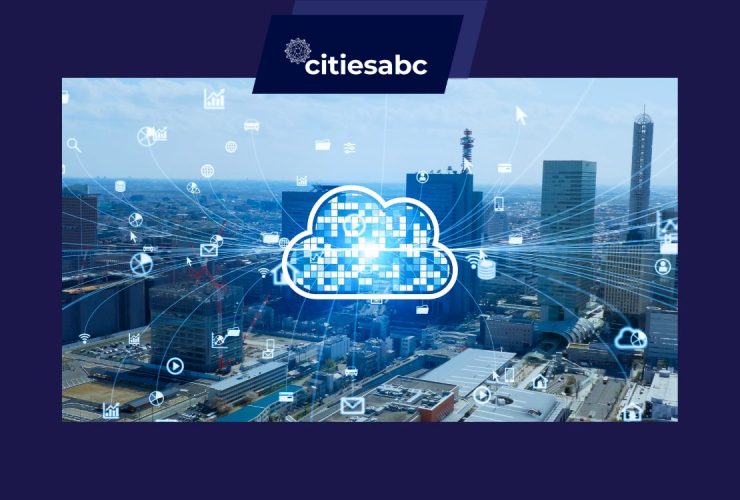How Blockchain Can Empower Smart Cities

Categories :
A blockchain is a distributed database among several computers that aims to make it difficult to access certain information and hack them. This system is a chain of blocks that lets users transfer data with high reliability. This technology can be very helpful in certain situations. For instance, blockchain can empower smart cities. Smart cities are urban areas that use new technologies to collect databases, helping them manage assets and provide services more efficiently. In this article, we want to take a look at how blockchain affects smart cities and how it helps with their development.
Why is blockchain beneficial for smart cities?
Smart cities require advanced technologies when it comes to solving issues. A smart city demands more intelligent solutions, and transferring and holding databases is among the most important struggles of this kind of urban area nowadays. Blockchain provides a way in which users can share databases without the need for a specialized third party in the safest way possible. Not having to store a large amount of data on a single or few computers and machines is probably among the most important reasons why blockchain comes in handy for well-developed urban areas. This all leads to more transparent and efficient data and supply management, carrying traceability as well.
How can smart cities apply blockchain?
Smart cities include different areas in which blockchain can play a role. These areas include energy systems, transportation, and public services, waste management, and whatnot. Let’s take a closer look at a few of these main areas:
Smarter and faster payments
Blockchain initially started as a safe way to trade crypto. Therefore, it is a great solution for making payments faster and more efficient. Through bitcoin or other cryptocurrencies, blockchain can fasten and internationalize the payment process, by simply changing the payer’s currency into bitcoin (or other convenient cryptos) and then changing it into the receiver’s local currency without the need for any additional actions. This is among the ways in which blockchain can help with the payments of a smart city. These solutions help processes such as payroll, welfare, etc.
• Saving energy smarter
Smart energy aims to provide clean energy with lower costs. You may be wondering how blockchain can affect such thing. Well, by facilitating peer-to-peer production and consumption, blockchain creates a more reliable environment for transferring energy. Managing energy recourses in a way to maximize positive consumption in an efficient way is exactly what this technology provides. Energy transactions get safer through blockchain by providing more transparency of the data as well.
• Smarter public transportation
Certain transportation methods provide more sustainability for smart cities, as well as create mobility and increase comfort and efficiency for the public. These intelligent transportation systems are among the main elements of any smart city. Managing a transportation system is one of the most difficult and yet important jobs of any government. By taking advantage of blockchain technologies, cities can track vehicles and their passengers so much more easily in real-time. This technology can also affect routes and transportation schedules, leading to smarter travel decisions and consequentially higher sustainability. Another advantage of blockchain for transportation, which goes hand in hand with one of the previous factors, is allowing users to pay through the blockchain system. Moreover, this system stores all sorts of data, creating a vast history of performance and maintenance, resulting in higher quality services.
• Smarter waste management
Blockchain affects waste management by supplying chain management. In this context, blockchain concentrates on either payments or tracking of waste. The transparency and reliability of blockchain technologies lead to clear practices, preventing fraud in the system. This system collects data on the wastes and their types and tracks them all the way from the moment of collection to their last destination. An example of the usage of blockchain in waste management is the French railway company. This company used blockchain to track the amount and frequency of waste in station bins. This helped them collect waste more efficiently. In certain countries, this device tracks citizens that collect and recycle more waste and rewards them with crypto.
• Smarter city administration
Smart cities require smarter services. These services can only be a result of smarter administration. Delivering more comfort to the citizens is the main aim of this activity. So many people believe that relying less on centralized administration increases reliability and effectiveness. Blockchain provides governments with a safe and reliable environment to shift their administration process. One of the aims of this action is for citizens to engage with their government services. Services such as identity management and tax-related applications are among the things this blockchain technology can positively affect. Blockchain also increases the reliability of governments by providing transparent information and enhancing accountability.
The Bottom Line
After reviewing different ways in which blockchain technology can affect a city, we realize that the main advantage of this technology in any matter is increasing security and providing transparency. No matter what area uses blockchain to become smarter, you can make sure the safety of that increases with this usage. Storing large amounts of databases within several different computer systems protects important information from hacking systems. Nowadays, smart cities are looking for efficient ways to increase their development. Blockchain technology is one of the best solutions for smart cities to solve their social issues and increase public efficiency. This technology can affect numerous aspects of a certain city, such as public transportation systems, administration and services, payment methods, identity, and tax-related processes, tracking and collecting waste and so many other important factors. Therefore, smart cities are looking at blockchain as a golden key solution to most of their modern-day problems.
Citiesabc was created by a team of global industry leaders, academics and experts to create new solutions, resources, rankings and connections for the world’s top cities and populations.









